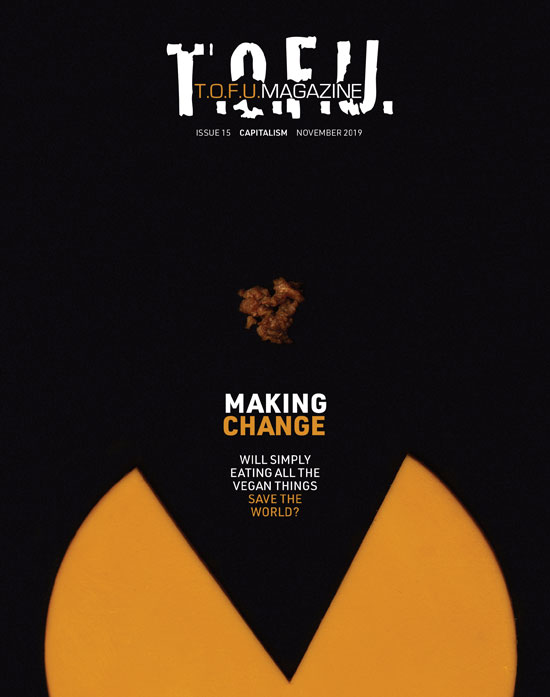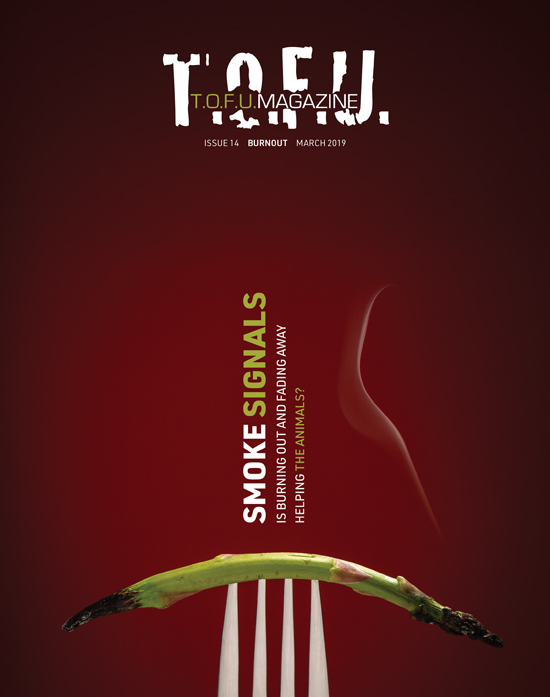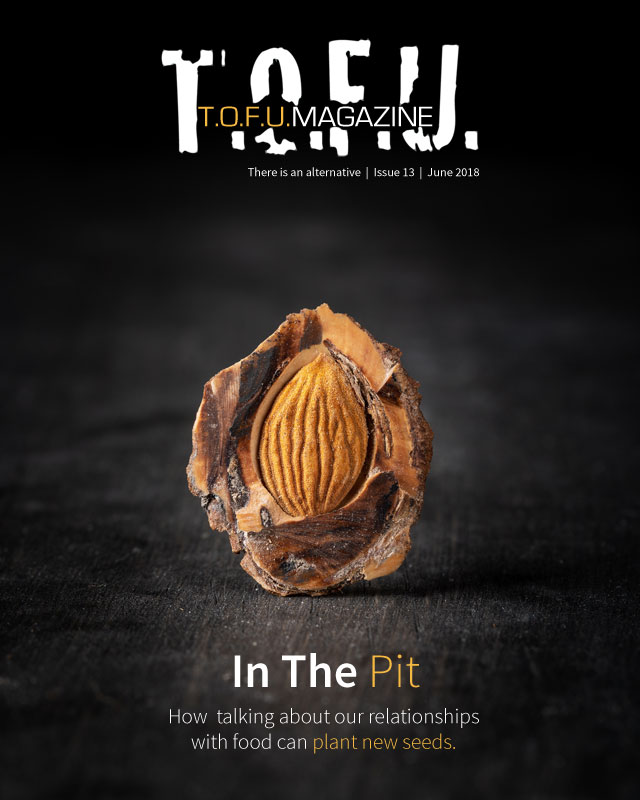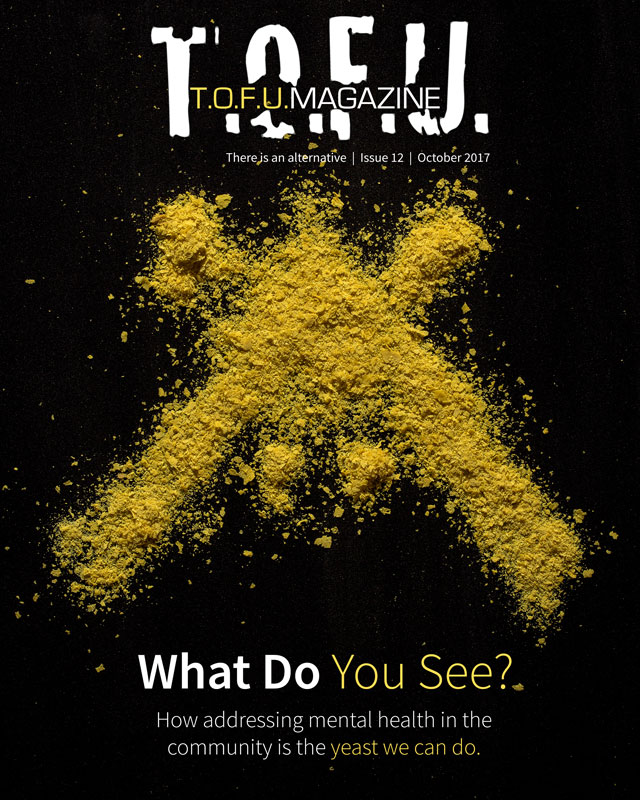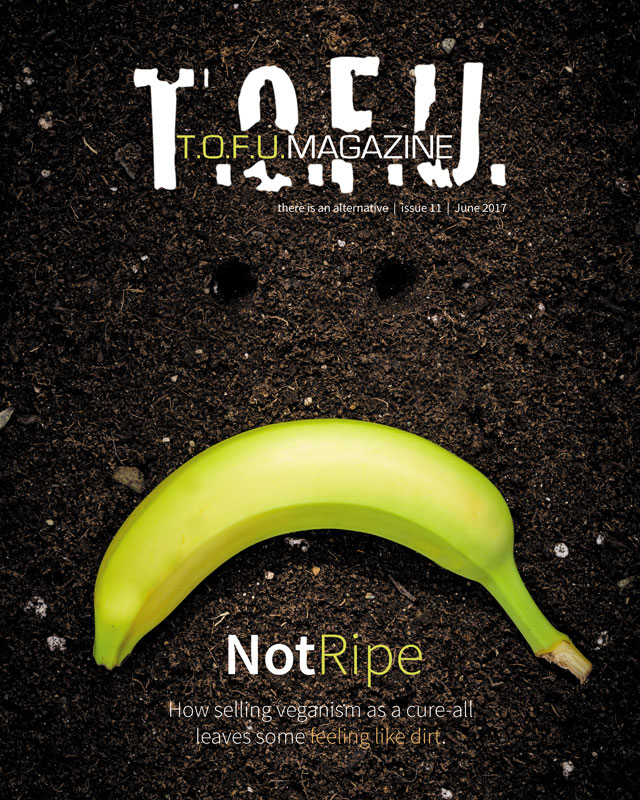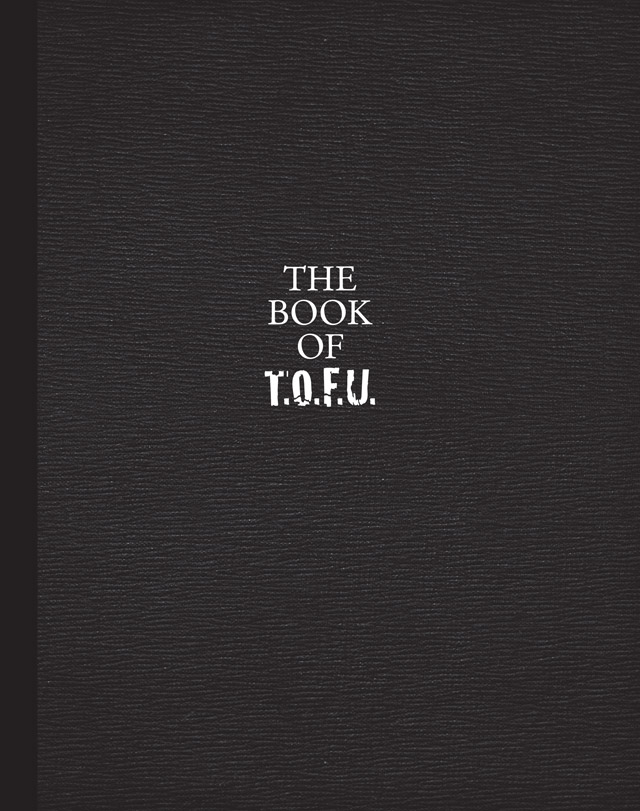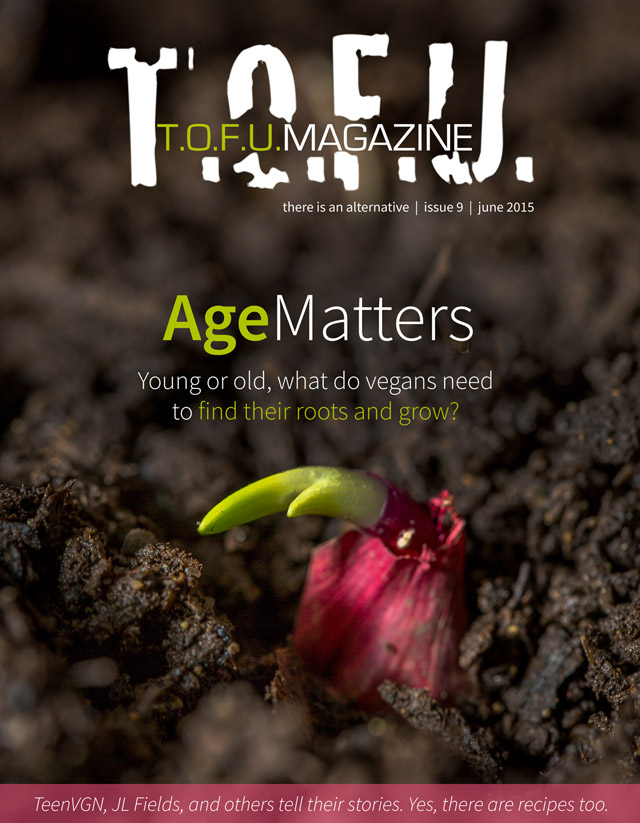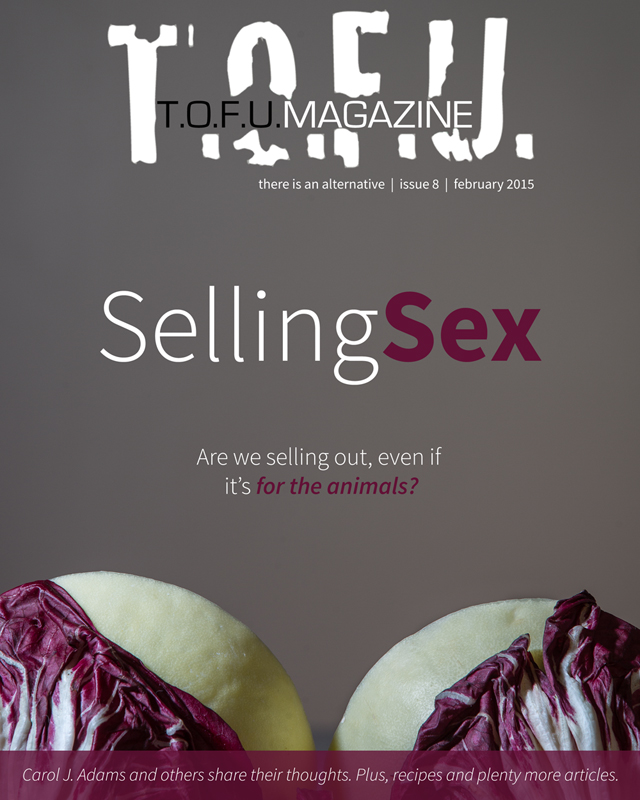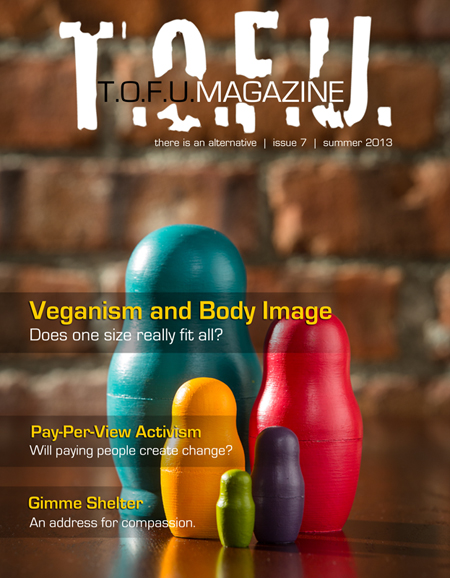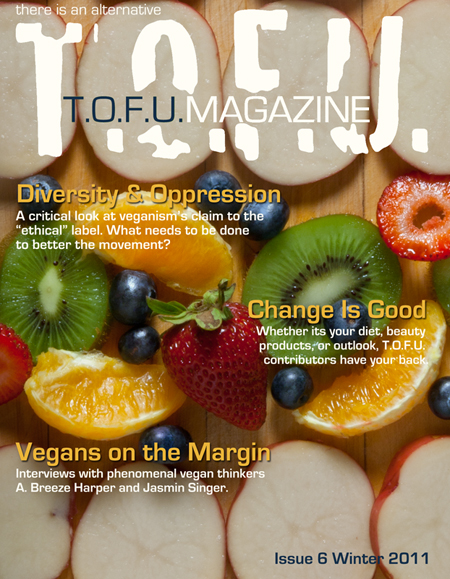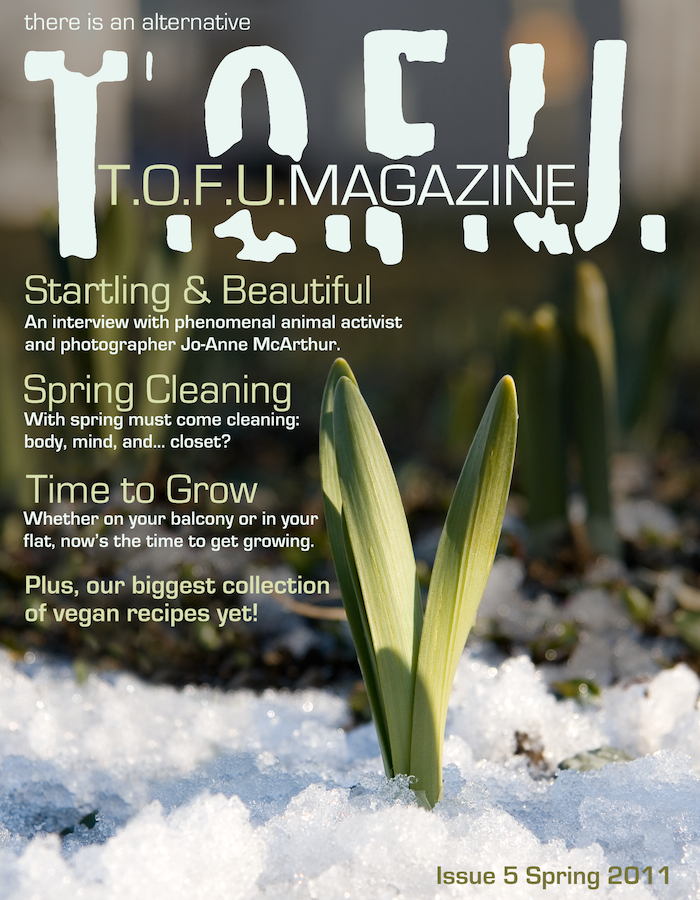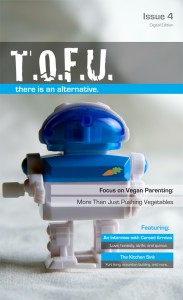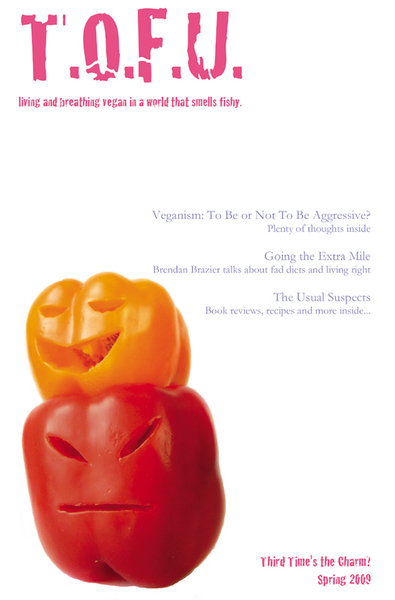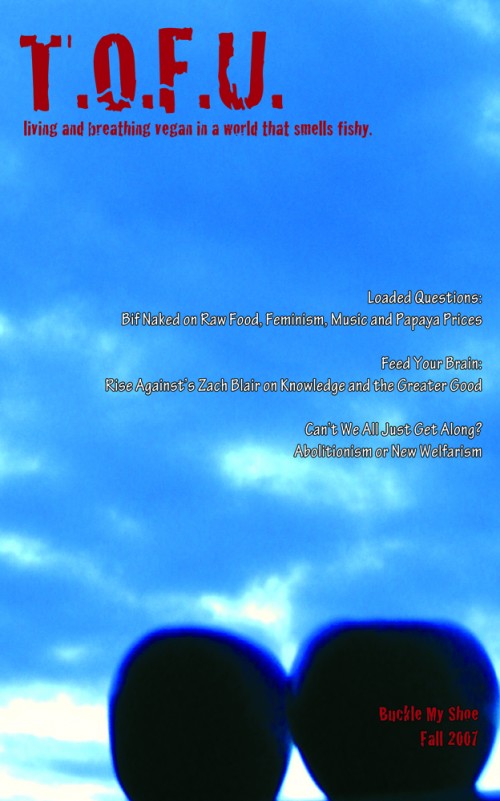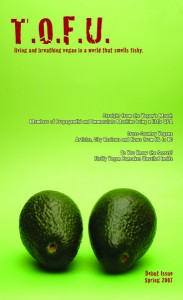T.O.F.U. #13 | The First Article
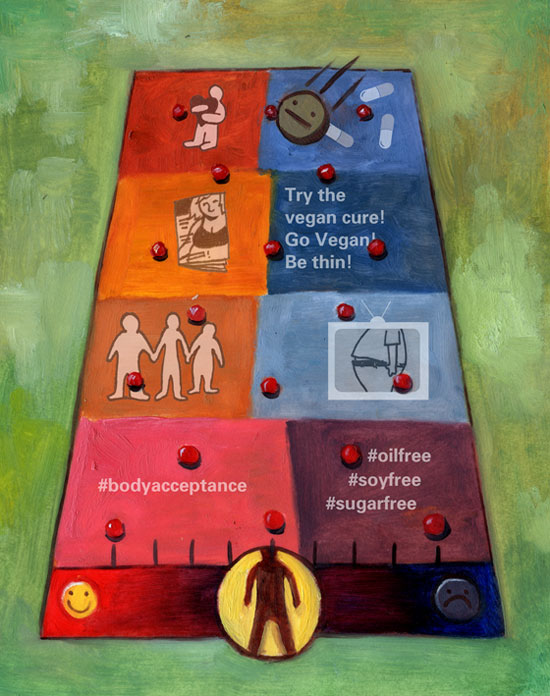
Since T.O.F.U. #13 is just about ready to be released, I thought I should give you an idea of what to expect from the issue that will focus on the intersection of disordered eating and veganism. Given that T.O.F.U. has focused on body image and fat shaming in a previous issue, it seemed fitting to have the intro piece touch on the fine line between common issues, such as low self-esteem or poor body image, and struggling with an eating disorder. As the author, Kristy Draper, illustrates through her own personal story, the influence of such things as the media, friends, and health professionals can prove to be either helpful or harmful when it comes to one’s own health and mental well-being. Being aware of this, both for our community and ourselves, is incredibly important, and it’s a point that will be mentioned numerous times in the upcoming issue. For now, here’s how the whole thing starts!
A Different Path
Words by Kristy Draper | Illustration by Matt Gauck
With the new year comes a barrage of advertisements that promise a healthier and new and improved version of you. Didn’t you hear, the diet industry has found a significant breakthrough to help you lose that belly fat and arm flab once and for all. Even better – try going vegan and see the pounds just melt away! A vegan diet can cure high blood pressure, alleviate the need to take all medications, and it even wards off cancer. In case you’re not convinced, you can hear daily testimonies from celebrities and professional athletes about their new-found love of eating vegan because of the weight loss, increased performance, and other benefits.
Throughout my life, I’ve heard and seen messages similar to the above. In fact, at almost any age, I can remember a commercial about a diet or fitness related product, a newscast showing the bellies of fat people and debating the “obesity epidemic†in our country, and advertisements in magazines adoring people that looked nothing like me. From this, I learned at an early age what I needed to strive to become, and that I should do it through any possible means.
I am a fat vegan. I was a fat non-vegan. I’ve been fat all my life. The fat shaming started at a young age for me. I was the largest kid in all my elementary school classes and along with that came many jokes about my size. My aunts, uncles, and grandparents made sure to let me know that my size was repulsive, not caring that I was only seven years old. Now at 36, I am a seasoned veteran of the diet industry. I have tried every diet that has been conjured up in a laboratory or a boardroom. Slim fast bars, drinking shots of collagen, and even rubbing my belly in a particular direction for 10 minutes each night. Nothing worked. I was still fat. Even a former boss tried to talk me into having gastric bypass surgery. She was having the surgery and wanted me to be skinny with her so we could both wear bikinis by the summer. After many sleepless nights thinking about the operation, I opted not to have the surgery. She went through the surgery and had multiple health complications because of it.
In 2012, I became a vegetarian. My change was not for health reasons, but because I wanted my lifestyle to finally align with my thoughts, feelings, and ethics. Those same reasons turned me vegan in 2014. My husband, also a large person when I met him, became a vegetarian in 2012 with me and then he went vegan only a few months later. After becoming vegetarians, we both lost weight over the first couple of months. That wasn’t a goal, but I thought hot-damn! Throughout most of my teen years and into early adulthood, I had had a secret goal: I wanted to write one of those inspiring weight loss stories that I read in the fitness magazines, and now I had unlocked the secret to weight loss. I wanted to scream at the world that I was finally almost just like everyone else, thin and happy. For me, the link between being thin and being happy was a solid line.
Smaller, Thinner, Better
I started paying more attention to how eating a plant-based diet could help me lose weight. I found a plant-based nurse practitioner in Austin, TX, where I was living at the time, and begged for an appointment. I was so excited to work with someone who could teach me about healthy eating and habits. My first appointment was in March 2015. It was a complete disaster. She was baffled that I was that fat and I was a vegan. Without even running lab tests, she told me I was pre-diabetic (and on the verge of being a diabetic) and that I had to change all my eating habits before my soon-to-be premature death. We hadn’t even discussed what I ate. It was just her perception based on my size.
She immediately had me start taking 2,500 mg of Metformin, a diabetic medicine, every night. My mother, who is diabetic, wasn’t even taking half that dose. The nurse practitioner told me that this drug would help me lose weight and regulate my insulin level. Again, this was all before I received my initial lab results. I felt like I didn’t have a choice in this decision. She made me feel so small (figuratively) and that I was the lowest form of a person. I think I had every negative side effect while taking Metformin. I was constantly nauseous, dizzy to the point where I couldn’t stand up, let alone be able to workout for any amount of time, and I even gained weight! I was told to stick it out until my next appointment, scheduled for three weeks later. At that point, my lab results were back. My blood sugar level was normal, and the only concerning number on the report was my vitamin D level. I was given the option to stop taking Metformin if I wanted but was heavily advised against it. I stopped. She then turned to my diet. I wasn’t allowed to have any grains, wheat, or sugar for at least three months. She was even offended by the five dates that I used in my homemade almond milk. I was to only eat a tiny portion of fruit per week and no avocados either. For the next three months, I killed myself on the treadmill while consuming very few calories. I lost 40 pounds in just a little over three months. There it was, the magic recipe for weight loss.
Pushed to the Edge
I had to go to the doctor every three months and have blood drawn before each visit. But I soon realized this was not a sustainable life. My weight loss had slowed down a great deal. My mental attitude declined into almost a depression whenever I had to miss one workout. I wasn’t happy. I was hungry all the time. For inspiration, I started joining online communities for plant-based weight loss and seeking out local groups as well. I started reading blogs, posts, and comments about fat vegans. So many people sounded like the nurse practitioner that I had been seeing. I would see people questioning how a person could be vegan and fat. “Don’t the fatties know how easy it is to lose weight eating vegan?†I couldn’t believe the negativity within the vegan community. Aren’t vegans supposed to be more compassionate? I mean, good grief, I am now fat-shamed by my fellow vegans! I was told I didn’t look like a vegan and even heard that I wouldn’t be taken seriously in the activist community because of my size.
I couldn’t please anyone! Veganism changed my entire life. I became aware of so many injustices in relations to animals, our environment, and even how human rights are connected. I educated myself on how my actions affect all beings and the physical world. However, I was led to believe that I would never make a difference, just because of my size.
Coupled with fat shaming, it seems that lately there has been a big push for “clean-eating,†labeling bad food versus good food, or even using the term “junk-food vegan.†Every doctor, nutritionist, or self- proclaimed diet expert has the magic formula for you to look great and feel good. I used to frequent a salad bar style restaurant in Austin where the saying, “Eat Good. Look Good.†was painted in ten–foot high lettering on their main wall. That slogan always made me feel uneasy because I felt if I weren’t eating a salad for every meal then I wouldn’t look good. Plus, I didn’t feel like I belonged in the restaurant because I didn’t believe a single person in there would think that I looked good. It goes back to thinking thin is beautiful and labeling a certain food as “good food.†What about feeling good? I didn’t eat a salad because I wanted to look good, I ate it because it tasted good and I liked the way my body felt after eating it.
Finding My Way Back
The term “body acceptance†is new to me. Hearing it the first time was equivalent to learning the word “quinoa†before I became vegetarian. I couldn’t wrap my head around the words or the meaning. Intentionally thinking that I can accept the person that I am today, knowing I may never be thin but I could be healthy, was a hard concept to grasp. Body acceptance is not something that is discussed in mainstream media. Our media and culture have conditioned us to think and believe what is healthy and beautiful. Thin is healthy. Thin is beautiful. We have created these labels to place our fellow humans into categories. There are almost seven billion people living on this planet, and we all have our own unique bodies. Many of us do not fit into certain categories. These categories have only enabled us to see a person and quickly judge how they live their lives based on the way they look. But, looks are deceiving, and not everything is always how it appears.
We need to start learning ways to accept ourselves as we are and lead by example in our language and thinking. I know this is easier said than done. It is a daily battle for me and most likely will always be a battle. I am lucky to have a spouse and friends who support me and help me rationally digest the information I consume from medical professionals, my peers, and the media. I could have easily stayed on the path of constantly thinking about ways to lose weight and filing away all the mental images and information I was receiving. I was hurting myself mentally and physically and distancing those around me while doing so. I know others who have not been as fortunate as me with a support system or a breakthrough to help right themselves. Some of them have chosen to share their stories in this issue, some share their struggles in other ways, and others sadly lost the battle and are no longer with us.
Speaking up against food and body-shaming is essential to shifting our culture’s thought process and language. In doing so, we are creating a support network. Ensuring not only our health and well-being, but also ensuring the health, safety, and well-being of others in which we are connected. It is easy to be unaware of all the direct and indirect connections we have with other individuals. But we hold great power in how we think, act, and communicate. One small sentence could change the course of someone’s life or even our own.
Kristy Draper is a vegan lifestyle coach & educator, as well as a cooking coach and mentor. She is currently earning a Master of Arts in Humane Education through the institute for Humane Education, where she is studying the connections between humans, non-human animals, the environment, and our culture. She lives in Vancouver, Washington with her husband, three rescued companion cats, and a feisty rescued guinea pig.
ig: @vegfullife | t: @vegfullife | fb: kristy.seisdraper

